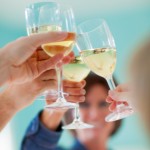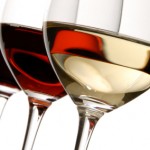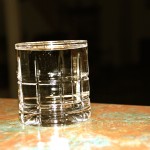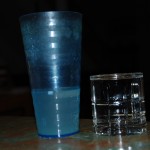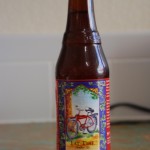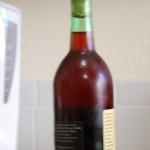I've been reflecting about our wine drinking in Europe. Here I normally have one glass of sweet white wine (e.g., Riesling Spatlese) three times a week. It's very rare that I'll have a second glass and when that occurs it's almost always at home. When we're at an evening event we routinely have a "designated drinker" and a designated driver. That's been our pattern for more than twenty years, ever since I saw an Army senior physician, about to move into a choice command position, make the irrevocable error of over-consumption of liquor at a party.
I've noticed a few months ago that other countries have considerably lower blood alcohol limits for drivers than ours in the United States: that altered my own behavior. Rarely in the past, if we were going to spend three or four hours at a party, I might have one drink at the start of the festivities and drive home some hours later. That no longer makes sense.
However, in Portugal, we almost always walked to restaurants and we almost always drank red wine: vino verde (I discovered this meant "young wine", not "green wine), Port or regional products. We were sitting next to a German couple at one delightful meal and started talking about our imbibing habits. They had a white wine bottle on their table while we were trying a local red . They said at home they usually have wine with dinner and drink a bottle every three days. On vacation, they were drinking a bottle a night.
We brought a half bottle back to the hotel and finished it the following evening sitting on the third-story terrace.
Normally, if I do have a second glass of wine I feel a slight buzz. That wasn't happening on this trip. When I thought about it I realized we weren't drinking standing up at a reception, but sitting down at a prolonged meal. Our typical dinner in the States lasts an hour; here we averaged two and a half hours. So both the length of time and our food intake played a part in moderating the effect of the alcohol we were consuming.
We're home now and back to our normal pattern. We ate at our favorite local restaurant yesterday and I had a Thai Ice tea and no wine.
I'm not suggesting any of you should start drinking wine if you don't now, and for those of you who do drink wine now I'm certainly not pushing for increased amounts (having seen far too many cases of cirrhosis). The medical data for a favorable effect of moderate red wine consumption is suggestive, but not definitive as I mentioned in my comments extracted from a Mayo Clinic website. At age seventy, with no history of overconsumption in my family, I'm choosing to err on the side of the vino. I may even switch from white to red wine.

